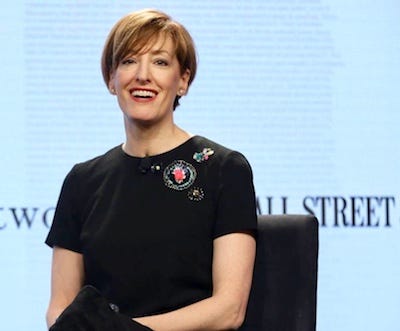If you’re even slightly familiar with Bitcoin, you’ve undoubtedly encountered the idea of “being your own bank.” This notion stems from Bitcoin’s peer-to-peer essence, placing control in the hands of its users rather than a central banking system. Still, the concept of banking holds a place in the Bitcoin realm, albeit in a form that differs from the traditional system we’ve grown accustomed to.
Caitlin Long has been on the frontline, championing prudent banking practices, specifically around the perils of Bitcoin leverage. Her work has shed light on how banking in the Bitcoin domain ought to function.
With her commendable 22-year stint on Wall Street, Long’s straightforwardness, coupled with her advocacy for sound money, has earned her iconic status among many. In Wyoming, her home state, she launched and currently presides over Custodia Bank (formerly Avanti Financial Group), an initiative that aims to connect conventional banking with digital assets. Her most recent battle has been to secure Federal Reserve account status for Custodia, a journey fraught with unwarranted resistance from the Federal Reserve. Nevertheless, Long maintains her stoic, professional, and dignified demeanor, determined to win this legal battle for Custodia.
Speaking with Long about her vision for the Bitcoin sector and the financial future was an honor. Her responses are sure to provide you with deep insights.
Long’s Bitcoin journey began in 2012 via alternative economic ideologies. She was part of an email group that began discussing Bitcoin. Those familiar with alternate economic schools of thought know that Bitcoin has piqued interest within these circles. For instance, proponents of Austrian School economics often view Bitcoin as digital gold, given its decentralized nature and finite supply, positioning it as a novel store of value. They also contend that Bitcoin, being politically neutral and inherently deflationary, offers a superior alternative to fiat currencies reliant on inflationary monetary policy.
There are numerous debates within Bitcoin and alternative economic schools of thought that we won’t delve into here due to time constraints.
As a trailblazer in the Bitcoin banking industry, Long has observed the ebbs and flows of U.S. policy. She remains optimistic, despite the challenges faced by Custodia in acquiring a Federal Reserve account.
Those in power in Washington, D.C., incorrectly believe they can extinguish Bitcoin—a humorous notion for anyone familiar with Bitcoin’s resilience. Bitcoin has survived numerous prophesized demises—it’s a code that 8 billion people worldwide can run on their smartphones. Policymakers acting out of fear often end up realizing the very outcome they dreaded. By pushing Bitcoin services to the sidelines, they will inadvertently make the Bitcoin network stronger, more globally distributed, and consequently, more resilient. They’ll also end up with less oversight and control over U.S. dollar on-/off-ramps than currently.
Does Long view Bitcoin as a tool to maintain the U.S. dollar’s status as the global reserve currency or as a route to a politically neutral monetary system globally?
She firmly believes that the U.S. can strategically and from a national security perspective, benefit from retaining its leadership in this technology. She notes that dollars can indeed be issued on the Lightning Network, and the U.S. should welcome this. The growth of stablecoins is evidence that the world wants the dollar to operate on internet-speed payment channels.
Regarding the gender gap in Bitcoin interest and adoption, Long views this as a broader issue that extends beyond Bitcoin to the tech sector and STEM fields in general. She used her appreciated Bitcoin to fund a scholarship for female engineers at the University of Wyoming in 2017. In her opinion, the best way to attract more diverse backgrounds into the Bitcoin space is to continue building upon the technology. Adoption is bound to grow over time!
In conclusion, it’s somewhat ironic that despite Long and her team at Custodia striving for full compliance, they’ve met resistance from banking regulators. The idea of fully-reserved deposits is foreign to these regulators due to their longstanding bias towards debt and rehypothecation. Innovators like Long not only deserve our admiration but also our support as they lead the charge into this new territory.

